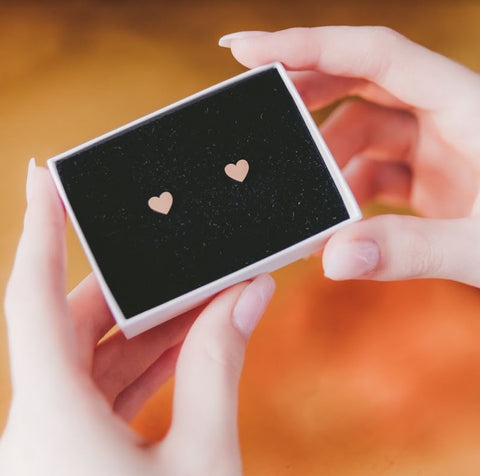Your Guide to Sustainable Fashion
In last week's blog, we suggested making more sustainable fashion choices as one of our six realistic resolutions for 2021. But what does that actually look like in practice?
Sustainable fashion is any piece of clothing that has been designed, produced, distributed, and used in a way that is environmentally friendly. Sadly, most of the mass-produced clothes we see on the high-street are not sustainable as they’re designed cheaply to fit current trends before inevitably ending up in landfill when they fall out of vogue - which is why the fashion industry is now the second largest polluter in the world.
But there are ways you can avoid the pitfalls of fast-fashion. This easy-to-follow guide is here to show you how.

Repair and Upcycle Your Existing Wardrobe
Never throwing a piece of clothing in the bin is the golden rule of sustainable fashion. Before replacing an item that has a hole in it, try repairing it or hiding it with some DIY embellishments. You can also refresh an outdated item with some funky embroidery or totally transform it into something new if you’re a sewing machine wiz!
If you do need to get rid of something (and it’s too worn to be donated to charity), don’t throw it out with your regular waste or it will be incinerated or end up in landfill. Instead, take it to one of the many recycling centres or supermarkets that have designated clothing recycling points.
Take Part in Clothing Swaps or Buy Second Hand
Clothing swaps are another way to get rid of unwanted items whilst snagging yourself a new wardrobe in the process. The idea is simple. Everyone takes along a bag of clothes which are then sorted by style or size. For each item you take, you’re then allowed to select a replacement from what’s on offer. Look out for organised events on social media or plan your own with friends.
If you’re after something specific, try hunting around in charity and vintage shops before you buy new. Not only will you be avoiding all the negative impacts of manufacturing, you’ll save yourself a few quid too!
Buy Organic Cotton Fabrics
Sustainable fashion is not just about reducing waste, it’s about ensuring that any clothing you do buy has been produced in a fair, ethical and eco-friendly way.
This means avoiding brands that focus on fast, mass produced fashion or are known to exploit underpaid workers. It also means avoiding fabrics that can’t be recycled or are harmful to the environment.
100% organic cotton is a good choice as it doesn’t include synthetic micro fibres that find their way into our seas and oceans. By choosing organic you can also be rest assured that no nasty chemicals or pesticides were used to make the fabric.
Also look out for GOTS (Global Organic Textile Standard) certified cotton that goes one step further and monitors the whole production process including the amount of water used and the working conditions of the farmers.
Aside from cotton, any 100% material garments (such as ethically sourced wool or silk) are better choices than mixed materials (like 80% cotton 20% polyester) as we don’t currently have the technology to separate mixed fibres meaning the fabric can’t be recycled.

Buy High Quality Items That Will Stand The Test of Time
One of the best ways to avoid waste is to only buy items that will stand the test of time. In terms of both clothing and accessories, this means opting for high-quality materials and timeless designs.
Stainless steel jewellery is a fantastic sustainable alternative to gold or silver as its production is much less harmful to the environment, it’s long-lasting and is fully recyclable. In fact, it can be recycled over and over without losing its durability.
Unlike silver, stainless steel jewellery doesn't tarnish or rust so it will last for decades without needing to be replaced. And if you opt for our stainless steel earrings, you can be sure that the packaging has been sourced to be as sustainable as possible too. Our jewellery boxes are made from recycled card whilst the tissue paper and printed card we use in the packaging is also 100% recycled.
